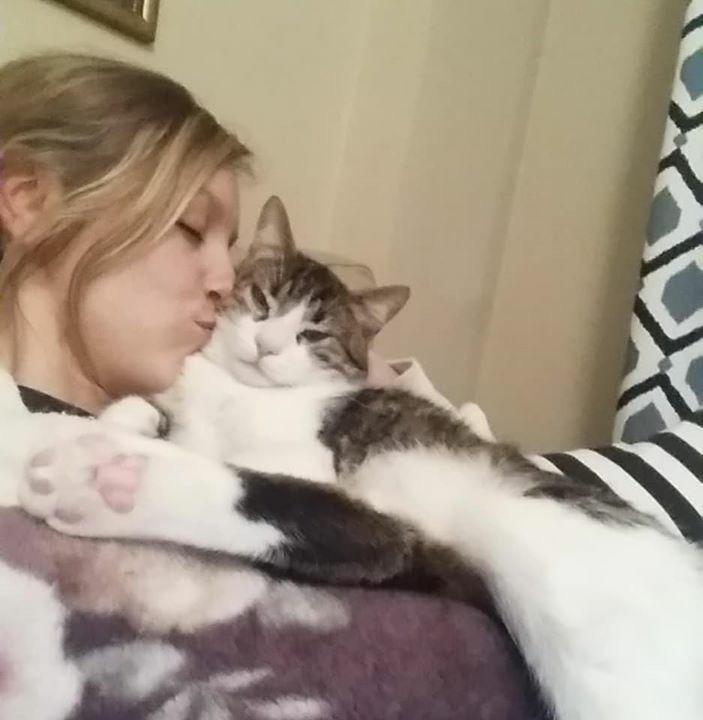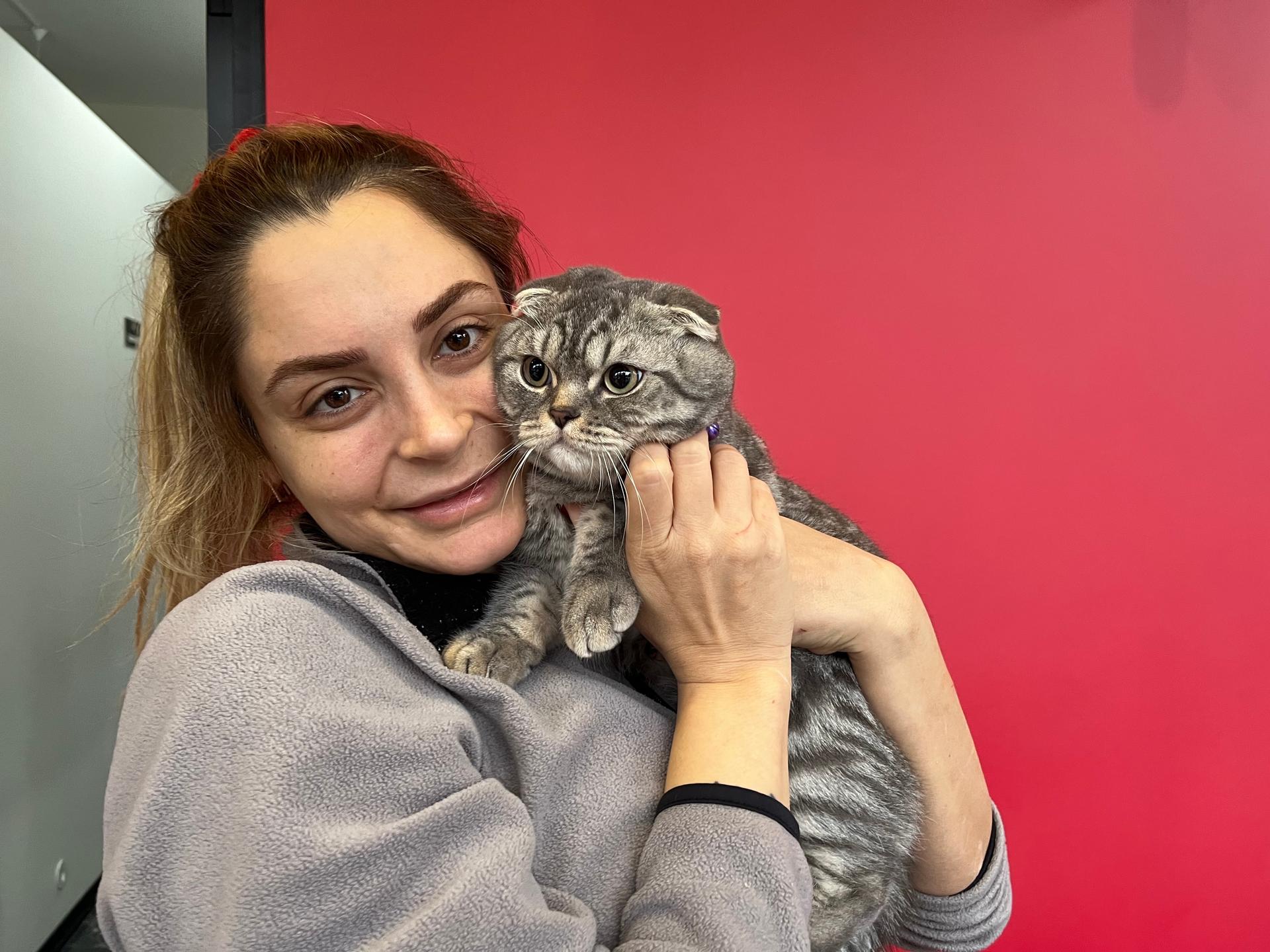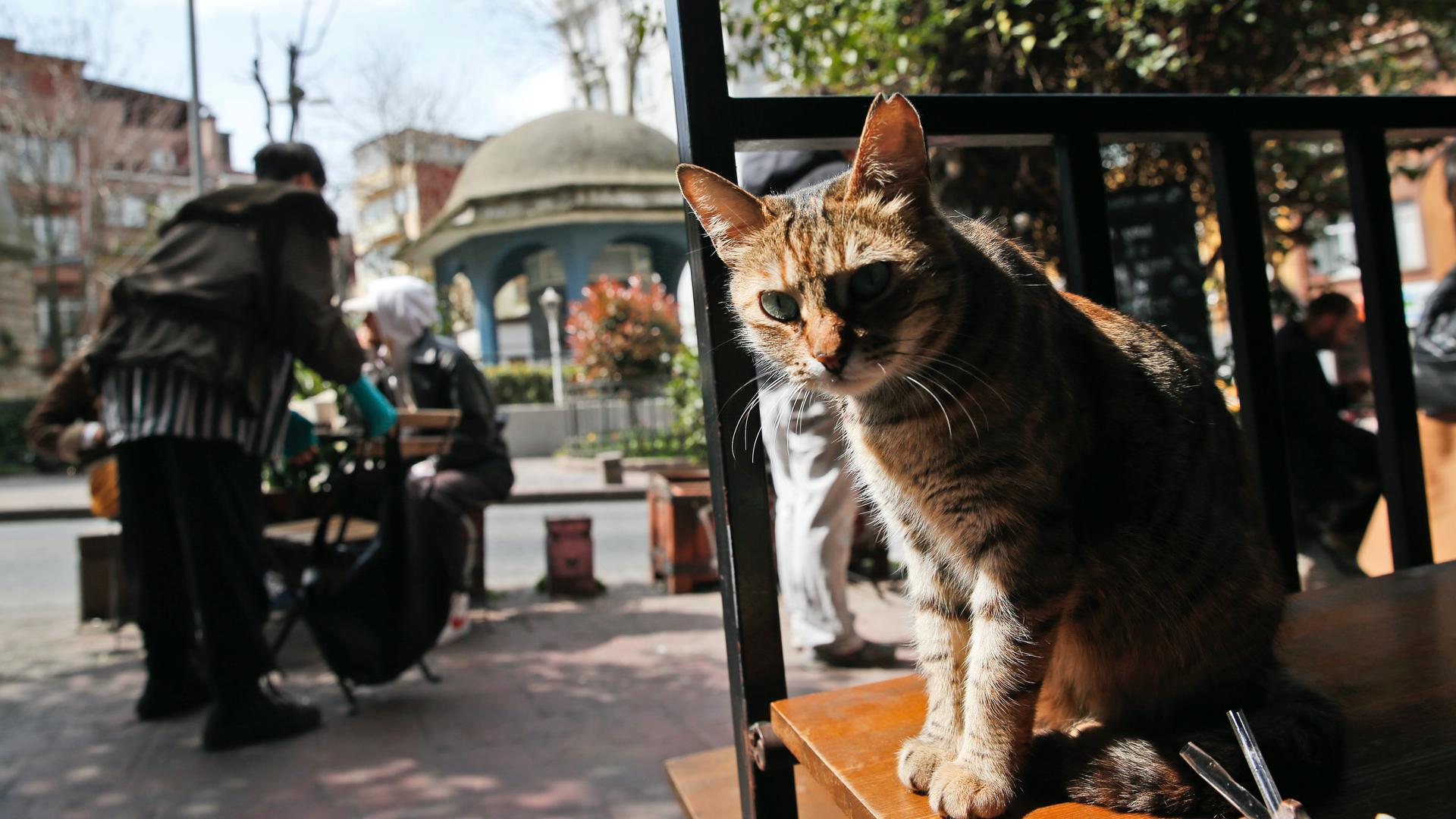Desperate pet owners turn to illegal drug markets to cure a rare cat virus
When Emilia, a British schoolteacher living in Istanbul, realized that her cat, Misket, wasn’t eating anymore, she rushed him to the vet.
After a series of tests, her cat was diagnosed with an almost-certain case of feline infectious peritonitis, or FIP. Without medication, the veterinarian told her, Misket would die within weeks. But Emilia didn’t get a prescription; instead, she was handed a list of phone numbers.
“This world we had entered into — there was definitely this element of can you trust these people?” Emilia said. (Her full name isn’t being used because the legality of what happened next is unclear.)
FIP, a deadly infection that springs from a mutated form of a coronavirus that is common in cats, was untreatable until only recently. In 2019, a medication developed by Gilead Sciences, known as GS-441524, was shown to be effective against FIP in clinical trials of afflicted cats.
But Gilead never pursued licensing for the compound in animals. Shortly after the GS-441524 trials, COVID-19 appeared on the scene, and Gilead sank its resources into regulatory approvals for remdesivir, a similar antiviral medication that showed promise in human COVID-19 cases. It was to be the first drug authorized by the Food and Drug Administration to treat COVID-19.

In the meantime, drug manufacturers abroad got ahold of the recipe, and began selling unlicensed versions of GS-441524 all over the world. In Turkey, where there are a lot of street cats, the drug is in especially high demand.
The phone numbers in Emilia’s hands were local sellers in Turkey who had access to the drug.
“But whatever we could do, we were [going to] do,” she said.
In healthier times, 7-year-old Misket was a sweet-tempered calico with a big, white belly and a fondness for his food bowl. He had grown incredibly weak in just a few short days, and had to be fed by hand with a mixture of wet food and water, with a syringe. Emilia and her husband, Emre, were desperate.
“He’d sort of just crawled into the cupboard and was laying at the bottom,” Emilia said. “A few weeks before that, he’d been absolutely fine. And then, for everything to change within a week, and to have the news that he wasn’t going to survive more than a few months was just crushing. We were absolutely devastated.”
After doing research online and consulting a WhatsApp group of cat owners whose pets had also gone through FIP treatments, Emilia and Emre settled on a seller who would send them an unlicensed version of GS-441524 through a mail service.
The medicine came in small glass vials, which Emilia and Emre would use to give Misket daily injections for about three months. Each vial contained enough medicine for two or three injections; the vials cost approximately $80. Sometimes, the price would fluctuate, or their seller would run out, resulting in a scramble to find the drug for the next week.
But after a couple of weeks, the medication started to work. One evening, while sitting on the couch, Emilia watched Misket get up and walk to his food bowl for the first time — a clear sign that he had started to feel better.
“It felt like a massive relief. We just knew we were doing the right thing,” Emilia said.
All told, Emilia and Emre estimate that they spent $2,500 on their treatments for Misket — leaving them with a deep sense of frustration that the medication wasn’t legally and widely available.
“But we didn’t ever feel like it was wrong. Because at the end of the day, we were trying to save our cat’s life, and this was the only way that we could do that,” she said.
At a private veterinary clinic in a seaside suburb of Istanbul, Dr. Sezin Çıtak calmed a fluffy gray cat for a blood draw.
FIP was always one of the saddest diagnoses to give a cat, Çıtak said, because it’s so fast, and so deadly. When GS-441524 came on the scene, it completely changed the game.
“It brought us so much happiness,” she said. “Within a week, the animals started to improve.”
At Çıtak’s clinic, the owners of afflicted cats buy the drug on their own, and bring their cats in for the injections. The drug is packaged under several different brands, her colleague, Hasan Musayev said, showing a small collection of vials.

“In this one, they write ‘for external use only.’ In others, they write on the [vial] that it’s forbidden. And you can’t get any information,” Musayev said.
Because there are no licensed drugs that work for FIP — Musayev and Citak say using GS-441524 isn’t illegal under Turkish law. But if a cat owner wants to use a medication that they can buy normally, from a pharmacy, they have had some luck using the human drug, remdesivir — with the dosage scaled down for a cat.
“Even though it’s expensive, at least there’s some kind of a solution for these cats,” she said. “Because before, all of them would lose their lives.”
Other veterinarians fear that the illegal market for GS-441524 makes it easy for unscrupulous sellers to provide fake or watered down drugs.
A veterinarian in Istanbul who asked not to share her name due to the legal status of GS-441524, said her previous employer would refuse to store the drug onsite, fearing random health and safety inspections by the government.
Even if they used the medication on an animal, they would ask pet owners to sign a form releasing the clinic from all liability.
“Veterinarians want it to be legalized because they’re already applying it, they’re seeing the results, that it works,” she said. “But the fact that it’s unlicensed makes it very costly, and a lot of times, we see pet owners can’t afford it and have to stop the treatment.”
